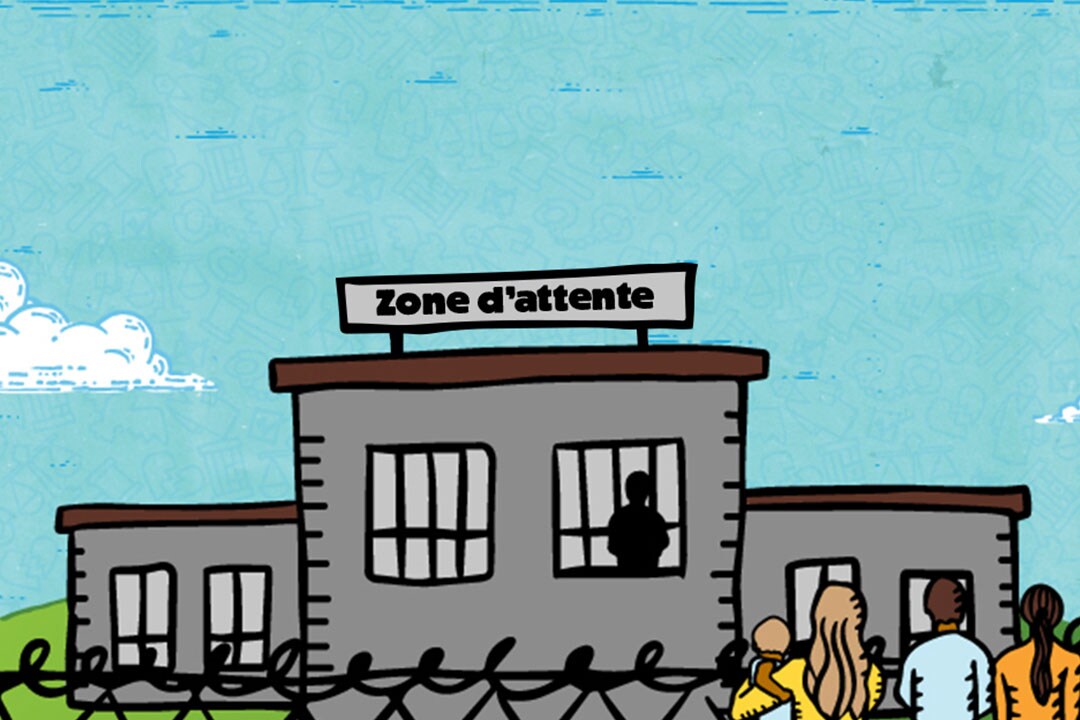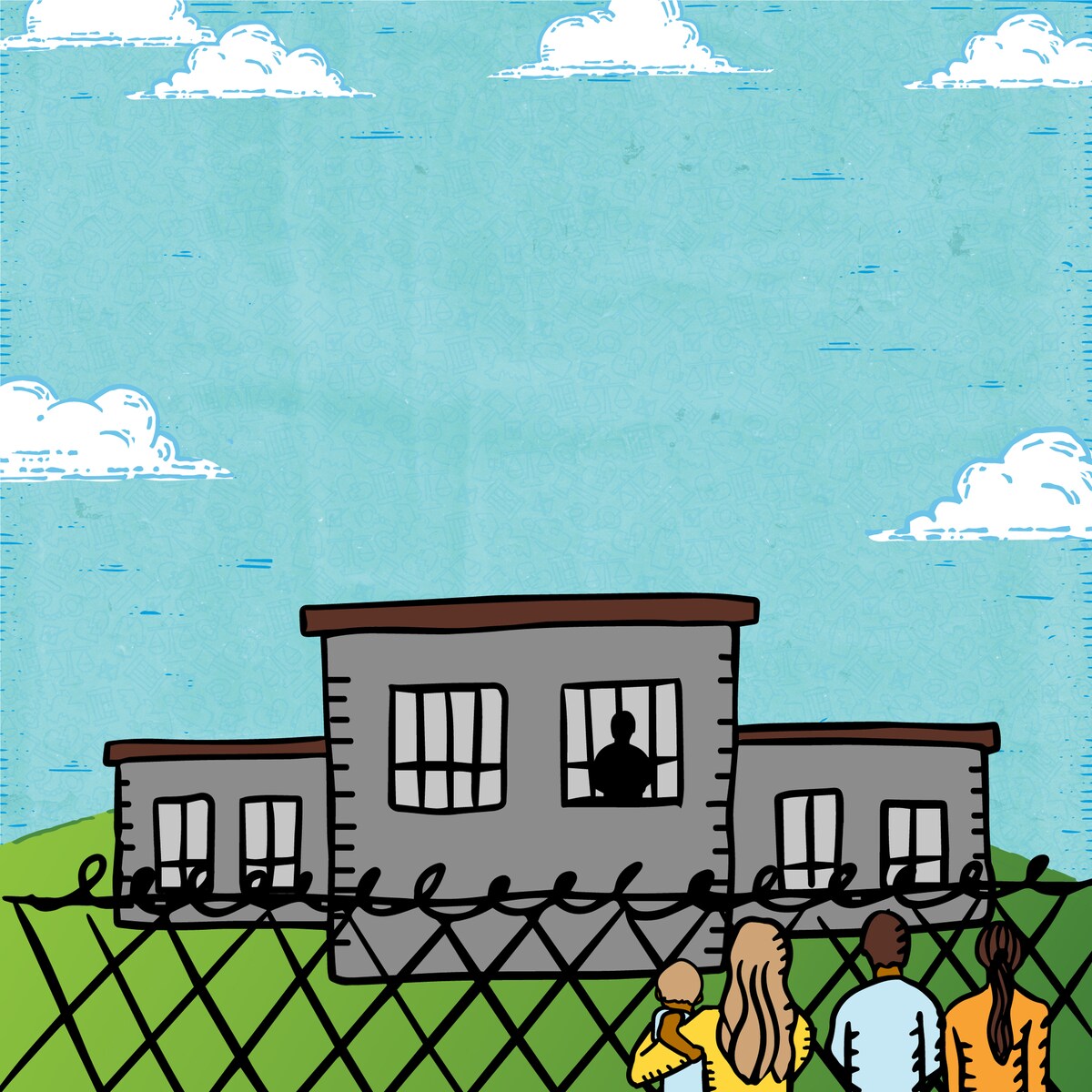Join us in calling for the End of Inhumane Detention. Sign the Petition now!
Dear Home Secretary,
The UK’s system of immigration detention is inhumane and unjust. Basic rights are being denied to thousands of people locked up every year with no due process and no limit on how long they can be held.
This cruel and inhumane treatment of people has no place in a fair and just immigration system. You must immediately take steps to end it.
The Issue
The UK Home Office is locking up thousands of people as part of their nightmare system of immigration detention. People are being routinely and inhumanely held in prison-like conditions with no idea when they’ll be released. And Priti Patel’s recent proposals would only be making a terrible situation worse.
The people locked up in detention are going through the immigration system in some way. Some may have called the UK home for all, or most of their lives, as with the Windrush Generation. Many will have escaped torture, violence, war, or human trafficking.
With no proper due process, people are held in detention centres for months or even years (yes, years!) based on the decision of a Home Office official. In contrast, people can only be held by police for a maximum of 96 hours, and only then with the approval of a judge.
It’s a cruel and unjust system. But it doesn’t have to be this way. Usually people going through the immigration system live in the community or with their families.
The excuse is often that people detained are being deported, but that doesn’t explain why it’s so inhumane. And the fact is, the majority of people aren’t deported – they are released again to their families and communities but often never recovering from this traumatic experience.
Detention separates families and fractures lives. Many people live in constant fear of being detained because the system is so inhumane and cruel. It causes severe distress for those who are detained, and for their families and friends. People are trapped in a maze with seemingly random rules, which destroys any trust that they will be treated fairly.
Tried and trusted alternatives rooted in dignity and compassion already exist—the Home Office just needs to use them. Yet instead they are choosing to shut down successful alternatives and increase the use of harmful practices.
We cannot stay silent. We must raise our voices and demand justice. Join us in calling for an end to inhumane detention.
Our Partners
-
Detention Action is a human rights organisation that fights for people held in immigration detention, people facing unjust deportation, and people seeking refugee protection in the UK. They work on the frontline, campaigning to end these human rights abuses, providing direct casework support to people held in detention centres, and running a community-based alternative to detention project.
-
The Detention Forum is a growing network of over 40 organisations working together to challenge the UK’s use of detention. They are working towards an immigration system that is based on humanity, compassion and fairness. Find out more at detentionforum.org.uk
FAQs
-
Immigration detention is the Government’s system for locking up people who are going through the immigration system. It is highly controversial and is notorious for its lack of basic rights, lack of safeguards, and for the terrible conditions people are kept in.
People are held in immigration detention centres, which are like prisons, with cells, walls, guards and barbed wire. The conditions have been described by people held there, NGOs, and, even official reports, as “inhumane” and “unsanitary”. A 2019 report from MPsOpens a new window on the home affairs committee warned there are "serious problems" in almost every part of the detention system, and nothing has changed since.
-
Around 24,000-30,000 people are locked up in immigration detention every year.
The people being detained are going through the immigration system in some way – often meaning their application to stay in the UK is being processed. Some may have called the UK home for all or most of their lives, as with the Windrush Generation, who were detained and told they had no right to be in the UK when in fact they did. The majority of people (61%) have claimed asylum in the UK at some point, and many have escaped torture, violence, war, LGBTQI+ persecution, or human trafficking.
-
One of the biggest problems with immigration detention is that there’s a big difference between what the Government says it’s used for and the reality.
The Government says it uses immigration detention only in exceptional circumstances and for short periods of time before someone is imminently removed from the UK. However, tens of thousands every year is not “exceptional circumstances” and in reality, there is almost no due process.
In practice people are detained in many different circumstances with seemingly random rules about who is detained and when or why. And the fact is, the majority of people aren’t deported – they are released again to their families and communities but often never recovering from this traumatic experience.
-
Some people are detained on arrival to the UK or when they claim asylumOpens a new window. Others can be detained when they try and renew their visa, having lived here for several yearsOpens a new window.
People are also taken from their communities in surprise raids by Home Office officials or don’t return from routine appointments at the Home Office. This practice leads to fear and distress for individuals who may never even be detained.
-
One of the most controversial things about the UK’s system of immigration detention is that there is no time limit on how long someone can be held for – it’s indefinite. Meaning that people are held for weeks, months or years and during that time have no idea when they may be released. Around one third of people are held for over a month. We are the only country in Europe that does this.
-
Around 24,000-30,000 people are detained in the UK every year. The seven detention centres in the UK typically hold between 1,800 and 3,500 peopleOpens a new window at any one time.
Whilst the number of people in detention dropped during the height of the pandemic, currently the numbers of people in immigration detention are rising via stealth as the recent decision by the Home Office to “accommodate” people seeking asylum in disused and unsafe army barracks is immigration detention in all but name.
-
At Ben & Jerry’s, our guiding principles drive us to advance equality, opportunity and justice for marginalised communities all over the globe. For 40 years we’ve campaigned for a fairer world for all, whether that’s on LGBTQ rights, racial justice, or working to protect and advance the rights of people seeking a safe place to call home.
We believe that the UK’s use of immigration detention is unjust and inhumane and when we see something that’s wrong, we can’t be silent. We must speak out alongside those affected by inequality and fight for justice.
-
We want to see an end to immigration detention as it is unjust and inhumane. We want to see an immigration and asylum system rooted in dignity, justice and compassion which puts humanity first.
People going through the immigration system usually live in the community – and we want this to continue, but without the threat of inhumane detention hanging over them.
-
Whilst over half of people detained have claimed asylum in the UK at some point, regardless of their reason for being here, we believe that everyone should be treated with dignity and respect. We are campaigning for the end of inhumane detention for all people.
-
Immigration detention is completely separate from the criminal justice system. Immigration detention is not for the protection of the public and is not for punishment in any form.
Some of those detained may have been through the criminal justice system, but would always have finished their sentence first – meaning they are suitable for release and would be free if they had a British passport. In these cases, immigration detention is an unjust double punishment.
In addition, many survivors of human trafficking end up in immigration detention after serving prison sentences for crimes they have been forced into during their exploitation – they need support and protection not more detention.
Regardless of where a person is from and their background, all people should be treated with dignity and respect.
-
Right now, we are supporting Detention Action in calling on the UK Government for an immediate end to inhumane immigration detention. We want to change the law to ensure that people going through the immigration system finally get the fundamental rights and protections they deserve, and to ensure that this nightmare system can never happen again. This includes a maximum time limit of 28 days, automatic review of cases by a judge after 72 hours, and due process around criteria of when someone can be detained.
-
Immigration cases are most often resolved while people are living in the community and there are many successful schemes designed to support people living in the community that not only are humane, but also lead to more successful outcomes for the immigration system.
For example, Detention Action’s Community Support Project works with people who have been through the criminal justice system and are also in the immigration system.
Another scheme worked with women who are seeking refugee protection and was designed specifically to ensure that women going through the system are protected and to reduce the need for detention. This year, the Home Office announce that this successful scheme would be shut down in favour of building another detention centre for women.
-
Being held in immigration detention is traumatic. People can only count the days, never knowing when they may leave the detention centres or see their families again. People in detention have been known to suffer serious mental health problems and experience suicide attempts and self- harm. For survivors of torture or victims of human trafficking, without access to community support and safeguards, there’s an additional risk to people’s physical and mental health.
People detained are known to have been subjected to disgraceful physical and verbal abuse by staff. After the detention is over, the experience causes severe emotional distress several years later.
Even if you have never been detained, the fear of detention causes its own kind of trauma.

